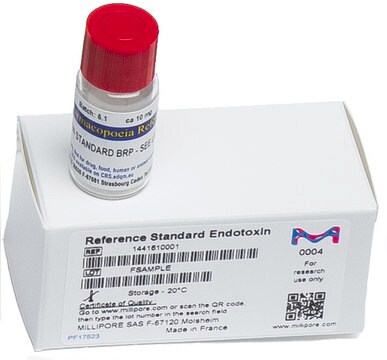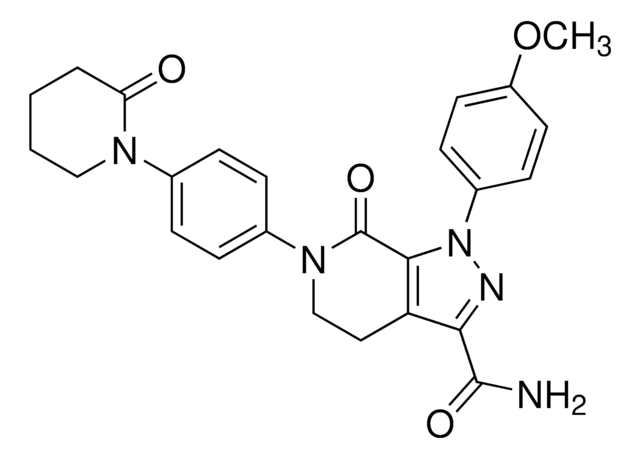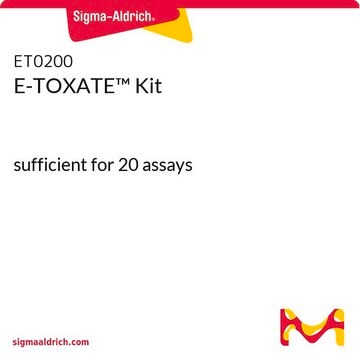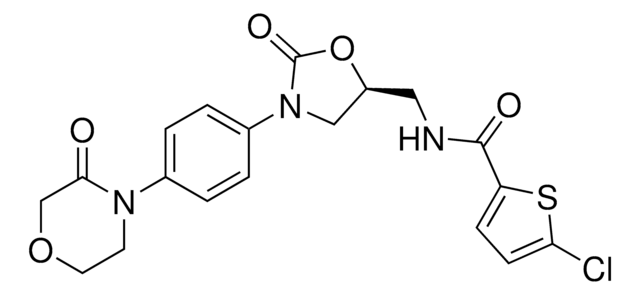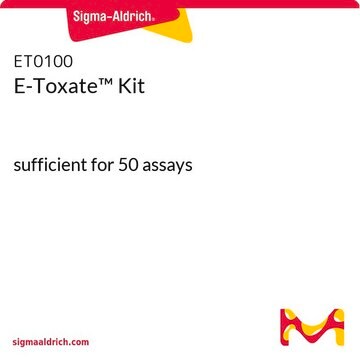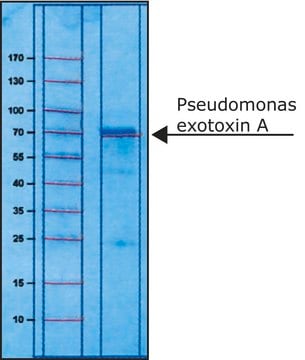1235503
USP
Endotoxin
10,000 USP Endotoxin Units, United States Pharmacopeia (USP) Reference Standard
About This Item
Recommended Products
grade
pharmaceutical primary standard
manufacturer/tradename
USP
application(s)
pharmaceutical (small molecule)
format
neat
General description
Suitable for Bacterial Endotoxins Test (BET) - a test to detect or quantify endotoxins from Gram-negative bacteria using amoebocyte lysate from the horseshoe crab (Limulus polyphemus or Tachypleus tridentatus). BET comprises three tests:
- the gel-clot technique
- the turbidimetric technique
- the chromogenic technique
Application
- Endotoxin Indicator for Depyrogenation
- Gallium Citrate Ga 67 Injection
- Sodium Iodide I 131 Solution
- Technetium Tc 99m Succimer Injection
- Yttrium Y 90 Ibritumomab Tiuxetan Injection
- Iothalamate Sodium I 125 Injection
- Characteristics analysis of an endotoxin according to the United States Pharmacopeia (USP) monograph “Endotoxin Indicator for Depyrogenation”.
- Preparation of standard solutions during preparatory testing for the confirmation of labeled lysate sensitivity according to the United States Pharmacopeia (USP) general chapter.
- Based directly on official monographs published in the USP-NF, these highly characterized physical specimens are used in testing by pharmaceutical and related industries to help ensure the identity, strength, quality, and purity of peptide-based medicines.
Other Notes
Storage Class Code
11 - Combustible Solids
WGK
WGK 2
Flash Point(F)
Not applicable
Flash Point(C)
Not applicable
Certificates of Analysis (COA)
Search for Certificates of Analysis (COA) by entering the products Lot/Batch Number. Lot and Batch Numbers can be found on a product’s label following the words ‘Lot’ or ‘Batch’.
Already Own This Product?
Find documentation for the products that you have recently purchased in the Document Library.
Customers Also Viewed
Related Content
Order from a broad range of highly characterized primary reference standard materials to use with USP-NF monographs for the testing of drug substances & dosage forms, pharmaceutical excipients, food ingredients and dietary supplements.
Our team of scientists has experience in all areas of research including Life Science, Material Science, Chemical Synthesis, Chromatography, Analytical and many others.
Contact Technical Service
